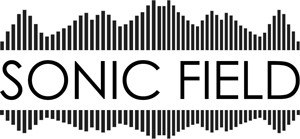
Under Review – Field Recording Works in the Spotlight.
essay by Simon Whetham
I think it’s only happened this year, but I have noticed some odd comments regarding work that features field recordings… it began with some not-too-favourable reviews of compositional work (rather than raw field recordings) in a certain weekly publication. The basic feeling I got from the reviews I read were that using field recordings as compositional raw material made the pieces uninteresting, unimaginative, dull… and the main complaint – nothing new.
I then was told, when preparing to perform in Prague, Czech Republic, that field recording was ‘trendy’ at the moment, especially in the UK. This implies that at the moment it’s a ‘cool’ thing to be doing. Popular. That a lot of people are field recording. This to my mind also implies that it will then become less popular.
A final straw was reading Nick Cain’s reviews of a couple of Gruenrekorder releases a couple of months ago, where he firstly said something very similar, as if field recording is suddenly very popular, and as the recordings didn’t move him, decided ‘Chris Watson could have done it better’. This seems to me to be pretty lazy journalism. For me, Mr. Watson’s work has never been about capturing the sound or feeling of a place, more about the specific sounds of a location, and there is a big difference. This is a subject for further discussion however.
Back to my point, on reading through this month’s issue of The Wire magazine, once again Nick Cain, in reviewing two new Gruenrekorder releases, mentions the ‘recent upsurge in the use of field recordings…’ (although I do have to add, this time around the review is more favourable). So once again, lots of people out field recording. Very popular. Very ‘cool’.
I have been focused on working with field recordings myself since late 2005, although I had been playing around with them in various ways before that, hence my interest. I had read the term on the website Epitonic.com, and downloaded a couple of sample tracks from artists such as Alp, but it wasn’t until I visited the 12 Tonar record store in Reykjavik that I realised there were quite a few artists out there using field recordings in composition.
Two CD’s I picked up were Chris Watson’s ‘Weather Report’ from 2003, and Ben Frost’s ‘Steel Wound’ that features field recordings by Lawrence English (also from 2003). From then on I researched the various artists using field recordings specifically in their work, and discovered people such as Francisco Lopez, Eric La Casa, Marc Behrens, the Gruenrekorder label (active since 2004 as far as I can tell), Patrick McGinley’s Framework radio show, and even a previous musical hero of mine, Robert Hampson, had moved from abstracting guitar to field recordings under the moniker of Main. Of course, there are many more, but these were my initial discoveries.
Through my own involvement of working with this material, I have continually discovered further artists and musicians who enjoy field recording and use recordings in their work, and labels – mainly smaller cdr labels and netlabels – who also specialise in this kind of work…
I was hoping to find answers or some resolution whilst writing this piece, but I continually come back to the same question. Is it that field recordings and their use in composition has grown in popularity over recent years (how far back do these reviewers refer?? 2003? That’s not recent by my definition!) or is it that the people who have been working with field recordings are only now getting the exposure they deserve?
On one hand you have people saying there is nothing new to be heard in compositions using field recordings, that it has reached a dead end to them, people who have been exposed to works such as these for over ten years, and then you have people who suddenly notice, ‘Hey, here’s another release with someone using field recordings. It must have become popular!’. And it seems to be a negative criticism…
A strange situation – are the same criticisms leveled at those working with drone music? Ambient? Improvisation? Noise even? I haven’t noticed it so much. You never see a review begin with the words ‘…uses guitar, and there seems to be an upsurge of artists using this instrument’!
So, working with field recordings is simultaneously a very popular thing to be doing right now, but has reached a dead end and no-one is producing anything new. Yet you hear any works that Gruenrekorder or Impulsive Habitat (to name but two) publish and no two works are the same!
I have brought up a number of issues while writing that could all be expanded on, and even my main point could be discussed further, which is now my aim. I hope this does spark further thought and examination, and look forward to other people’s responses.
I for one enjoy sharing recordings and thoughts with like-minded people, and hearing new work by artists known and unknown. However, my main drive is that I continually enjoy going out and recording. I don’t do it to be part of a (apparently popular!) movement – I do it because it makes me happy, and satisfies some need in me. I am still excited when I hear and hopefully capture an interesting sound or sonic phenomenon (it doesn’t have to be new!) and can’t ever see that diminishing.
-Simon Whetham
Simon Whetham website
Nick Cain links to Wire articles
Chris Watson website
Gruenrekorder website
Wire website
Lawrence English website
Fransisco Lopez website
Eric La Casa website
Marc Behrens website
Framework radio website
Robert Hampson website
Impulsive Habitat website
(article photo by Grindcore Gourmet)

